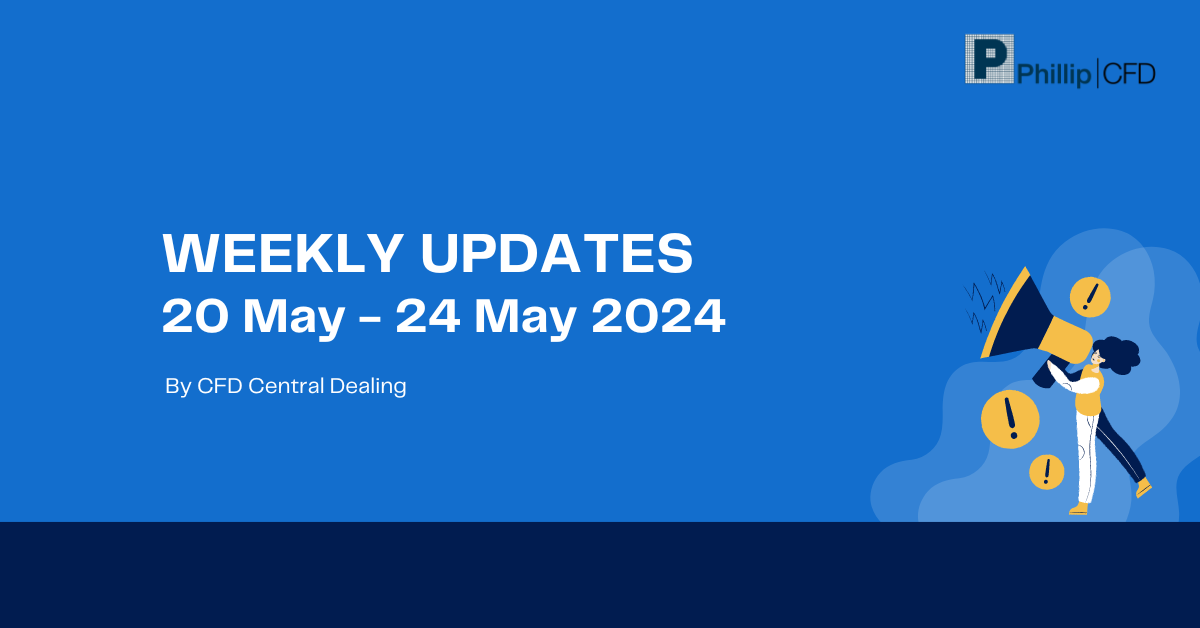Economic calendar
Table of Contents
Economic calendar
Economic calendars provide investors with up-to-date information on macroeconomic trends and their potential implications for financial markets. They include essential indicators like GDP reports, interest rate decisions, unemployment statistics, and consumer confidence surveys.
What is an economic calendar?
An economic calendar helps traders predict stock market changes and developments by keeping tabs on significant announcements, indications, and events in the economy. Traders and investors use these calendars to anticipate market moves and modify their strategies effectively. By keeping track of scheduled events and data releases, they may evaluate the state of the economy, measure market mood, and make well-informed judgements about purchasing, selling, or holding onto assets.
Understanding the economic calendar
An economic calendar includes weekly unemployment claims, new home starts, expected interest rate adjustments or signals, Federal Reserve or other central bank releases, and market mood surveys.
Traders that intend to go short may profit from the economic calendar. If the investor predicts the news correctly, they may establish an account before it occurs and shut it within hours. This is achievable if the investor predicts well.
An economic calendar may include an extensive list of events, although some are more significant than others. Such events attract the attention of traders worldwide who are trying to hedge their risk or seize an opportunity amidst market volatility.
These are a few of the events that traders are increasingly watching:
- Central bank announcements have a significant impact on the bond and currency markets.
- GDP releases offer a summary of the state of the economy in a nation.
- Non-farm payrolls are a crucial metric that impacts several markets and provides insight into the US job market.
- Profit reports are especially important for stock investors because they show a company’s financial health.
- The consumer price index (CPI) data, for example, verifies inflation and affects the value of currencies and buying power.
Working of economic calendar
The economic calendar is a crucial chart detector for traders and investors. It provides a schedule of key economic events and indicators that can significantly influence financial markets. It displays the release dates of economic information, such as GDP figures, employment reports, and inflation rates, which can drive price movements in the market.
The calendar categorises events by date, time, type, country/region, and importance level, providing details like previous and forecasted values for each event. This information may help traders time market entries and exits, predict price changes depending on the news, and adjust their trading strategy.
Importance of economic calendar
Economic calendars are essential for regulators and other entities involved in the financial markets. Nonetheless, traders and investors make extensive use of them. Long-term investors, for example, will use the signs to determine whether or not to review their asset allocations.
Investors may reallocate their holdings and portfolios to safer fixed-income securities if leading indicators indicate an impending economic downturn. In contrast, indicators of an improving economy might lead to a move towards riskier stock investments.
Additionally, traders use economic events to determine precisely when to enter and exit the market. They evaluate how these events are expected to affect the market trajectory and update their trading positions effectively.
For example, traders may take long positions expecting robust economic data to profit from possible market growth. In contrast, short positions may result from negative expectations to profit from price decreases. This approach is consistent with the practical market theory by highlighting how new data shapes market dynamics and affects security prices.
Example of economic calendar
An example of using the economic calendar in trading involves a market consolidating into an ascending triangle pattern, leading to a significant economic release. Traders may prepare for the next release by discovering key levels, sketching breakout levels, and utilising the economic calendar to track expectations and consensus.
If favourable news exists, traders may transact using pre-news levels and strategies. Traders may consider a failed setup and move on to the next trade if unfavourable news drags the market down. This shows how traders may utilise the economic calendar to make wise decisions, manage risks, and change their trading techniques to follow market movement.
Frequently Asked Questions
You can keep track of significant economic events that impact the foreign exchange market with the economic calendar by monitoring GDP, interest rate, and employment statistics.
Economic calendar variations are available daily, weekly, and monthly to assist users with varying time horizons and preferences. While some calendars cover critical economic data, others cover a wider variety of events, such as speeches from central bankers or changes in geopolitics. Customised calendars made for specific markets or locations can also offer traders and investors working in such places localised information that is pertinent to them.
Many economic indicators are released every three months. This shows the three-month economic performance. GDP, employment cost index, and corporate profitability are examples. Traders have a clearer view of the economy and trends from quarterly reports.
The platform-linked economic calendar is the most popular and dependable. It’s popular since it covers numerous worldwide economic events, provides real-time reports, and has an easy-to-use structure. The system has customisable analytical filters, so traders and buyers may readily find the data they need to make wise choices. This is feasible since these tools and filters are changeable. This economic calendar is helpful for market workers since it provides accurate and current information. This is crucial for navigating the complex financial markets.
The forex economic calendar is crucial for currency traders since it indicates events and news that might influence currency pairings. This calendar considers economic statistics from significant nations, central bank meetings, global events, and policy choices. Learning about these events may help foreign currency buyers succeed in turbulent and fast-paced markets. This allows them to foresee market volatility, discover trading opportunities, and manage risk, increasing their chances of success.
Related Terms
- Secondary Market
- Subordinated Debt
- Basket Trade
- Notional Value
- Speculation
- Quiet period
- Purchasing power
- Interest rates
- Plan participant
- Performance appraisal
- Anaume pattern
- Commodities trading
- Swing trading
- Interest rate risk
- Equity Trading
- Secondary Market
- Subordinated Debt
- Basket Trade
- Notional Value
- Speculation
- Quiet period
- Purchasing power
- Interest rates
- Plan participant
- Performance appraisal
- Anaume pattern
- Commodities trading
- Swing trading
- Interest rate risk
- Equity Trading
- Adverse Excursion
- Booked Orders
- Bracket Order
- Bullion
- Trading Indicators
- Grey market
- Intraday trading
- Futures trading
- Broker
- Head-fake trade
- Demat account
- Price priority
- Day trader
- Threshold securities
- Online trading
- Quantitative trading
- Blockchain
- Insider trading
- Ex-dividend date
- Equity Volume
- Downtrend
- Derivatives
Most Popular Terms
Other Terms
- Market maker
- Direct market access
- Deficit interest
- Strong order book
- EPS forecast
- Fiat money
- Options expiry
- Adjusted distributed income
- International securities exchanges
- Settlement currency
- Federal funds rate
- Active Tranche
- Convertible Securities
- Synthetic ETF
- Physical ETF
- Initial Public Offering
- Buyback
- Secondary Sharing
- Bookrunner
- Notional amount
- Negative convexity
- Jumbo pools
- Inverse floater
- Forward Swap
- Underwriting risk
- Reinvestment risk
- Final Maturity Date
- Payment Date
- Margin Requirement
- Mark-to-market
- Pledged Asset
- Yield Pickup
- Trailing Stops
- Treasury Stock Method
- Stochastic Oscillator
- Bullet Bonds
- Contrarian Strategy
- Exchange Control
- Relevant Cost
- Dow Theory
- Stub
- Trading Volume
- Going Long
- Pink sheet stocks
- Rand cost averaging
- Sustainable investment
- Stop-limit sell order
- Economic Bubble
- Ask Price
- Constant prepayment rate
Know More about
Tools/Educational Resources
Markets Offered by POEMS
Read the Latest Market Journal

One Dollar at a Time: The Potential of Fractional Shares
Table of contents 1. Introduction 2. Dollar-Cost Averaging 3. Popularity of Dollar-Cost Averaging 4. Small...

Unit Trusts vs Exchange Traded Funds (ETFs) – Which is better for your portfolio?
Imagine you are dining at a nice restaurant, feeling overwhelmed by the variety of seemingly...

Weekly Updates 20/5/24 – 24/5/24
This weekly update is designed to help you stay informed and relate economic and company...

What is CFD? With 2 Practical Examples
In this article, you will learn what CFD (Contract for Difference) is, the costs and...

What is ESG investing, and why is it important?
Over the last five years, Environmental, Social, and Governance (ESG) investing has evolved from being...

In the diverse world of unit trusts, various funds employ distinct investment strategies aligned with...

Hong Kong Value Stocks Q2 2024
After a long period of sluggishness, Hong Kong market has begun to pick up. The...

Weekly Updates 13/5/24 – 17/5/24
This weekly update is designed to help you stay informed and relate economic and company...












